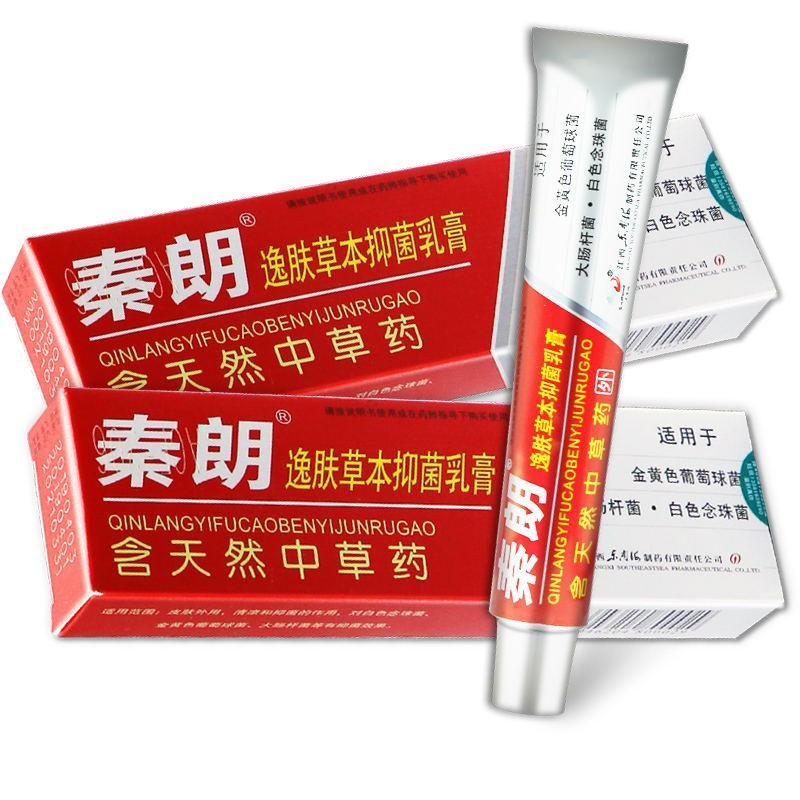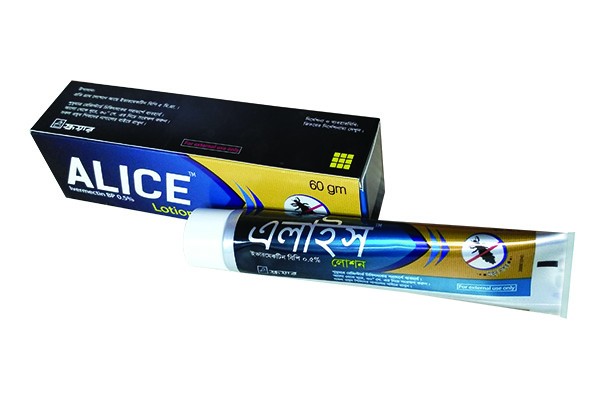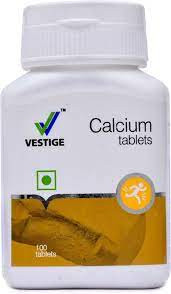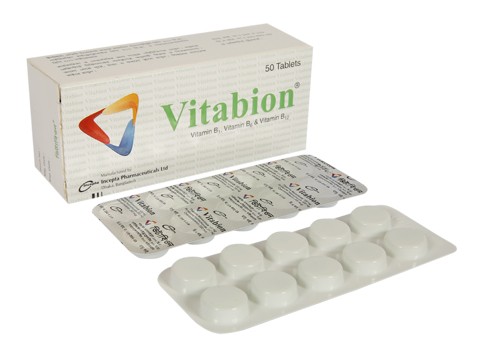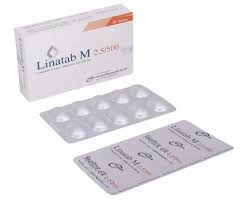

Linatab M Tablet 2.5 mg+500 mg (10Pcs)
Inhouse product
-
৳1,030.00
৳1,550.00 -
৳10.00
৳12.00 -
৳280.00
৳500.00 -
৳127.00
৳132.00 -
৳900.00
৳1,300.00 -
৳112.00
৳120.00
Reviews & Ratings
Generic
Linagliptin + Metformin Hydrochloride
Indications
When treatment with both Linagliptin and Metformin Hydrochloride is suitable, this is suggested as an addition to diet and exercise to enhance glycemic control in individuals with type 2 diabetes mellitus.
Pharmacology
Linagliptin is used to help people with type 2 diabetes regulate their blood sugar levels. DPP-4 (dipeptidyl peptidase-4) is an enzyme that degrades the incretin hormones GLP-1 (glucagon like peptide-1) and GIP (glucagon-like peptide-1). Linagliptin is an inhibitor of DPP-4 (dipeptidyl peptidase-4) (glucose dependent insulinotropic polypeptide). Linagliptin stimulates the release of insulin from pancreatic beta () cells in a glucose-dependent manner while reducing the production of glucagon from pancreatic alpha () cells in the blood, increasing the concentrations of active incretin hormones.
Metformin Hydrochloride is an antihyperglycemic medication of the biguanide class that is used to treat type 2 diabetes. Both baseline and postprandial plasma glucose levels are reduced. It has a different mode of action than sulfonylureas and does not cause hypoglycemia. Metformin Hydrochloride reduces hepatic glucose synthesis, intestinal glucose absorption, and insulin sensitivity by increasing peripheral glucose uptake and utilization.
Dosage & Administration
Linagliptin & Metformin immediate release tablet:
The dosage of Linagliptin & Metformin should be individualized on
the basis of both effectiveness and tolerability. Maximum recommended
dose of 2.5 mg Linagliptin and 1000 mg Metformin Hydrochloride twice
daily with meals. Dose escalation should be gradual to reduce the
gastrointestinal (GI) side effects associated with Metformin
Hydrochloride use.
Recommended starting dose: In patients
currently not treated with Metformin Hydrochloride, initiate treatment
with 2.5 mg Linagliptin and 500 mg Metformin Hydrochloride twice daily.
In
patients already treated with Metformin Hydrochloride, start with 2.5
mg Linagliptin and the current dose of Metformin Hydrochloride twice
daily.
Patients already treated with Linagliptin and Metformin
Hydrochloride, individual components may be switched to this combination
containing the same doses of each component.
Linagliptin & Metformin extend release tablet:
The dosage of this combination should be individualized on the basis of
both effectiveness and tolerability, while not exceeding the maximum
recommended total daily dose of Linagliptin 5 mg and Metformin
Hydrochloride 2000 mg. this combination should be given once daily with a
meal.
Recommended starting dose: In patients currently not
treated with metformin, initiate this combination treatment with 5 mg
Linagliptin/1000 mg Metformin Hydrochloride extended-release once daily
with a meal.
In patients already treated with Metformin, start
this combination with 5 mg of Linagliptin total daily dose and a similar
total daily dose of Metformin once daily with a meal.
In
patients already treated with Linagliptin & Metformin immediate
release tablet, switch to extend release tablet containing 5 mg of
Linagliptin total daily dose and a similar total daily dose of Metformin
once daily with a meal.
5 mg Linagliptin & 1000 mg Metformin
Hydrochloride extended-release tablet should be taken as a single
tablet once daily. Patients using 2.5 mg Linagliptin & 1000 mg
Metformin extended release tablets should take two tablets together once
daily.
Interaction
Cationic drugs (amiloride, digoxin, morphine, ranitidine, trimethoprim etc.): May reduce metformin elimination.
P-glycoprotien/CYP3A4 inducer (i.e. rifampin): The efficacy of this medicine may be reduced when administered in combination.
Contraindications
Metformin Hydrochloride is known to be extensively eliminated by the kidney, notwithstanding Linagliptin's low renal excretion. With the severity of renal impairment, the risk of Metformin Hydrochloride buildup and lactic acidosis rises. As a result, people with renal impairment should avoid this combination. Acute or chronic metabolic acidosis (diabetic ketoacidosis) and hypersensitivity to Linagliptin or Metformin Hydrochloride are additional contraindications.
Side Effects
Most common side effects are nasopharyngitis and diarrhea. Hypoglycemia is more common in patients treated with this combination and sulfonylureas.
Pregnancy & Lactation
Because there are no sufficient and well-controlled trials in pregnant women with this combination or its separate components, it should only be taken if obviously needed during pregnancy. When given to a nursing woman, extreme caution should be exercised.
Precautions & Warnings
Metformin should be stopped immediately in patients with lactic acidosis who are taking it, and supportive treatment should be started very once. Acute pancreatitis has been reported after the drug's release. If pancreatitis is detected, stop taking Linagliptin and Metformin very away. In patients having radiologic tests with intravascular injection of iodinated contrast materials or any surgical procedures requiring restricted food and fluid intake, temporarily stop taking Linagliptin and Metformin. Because metformin can reduce Vitamin B12 levels, hematologic markers should be checked at least once a year.
Therapeutic Class
Combination Oral hypoglycemic preparations
Storage Conditions
Keep away from light and heat in a dry area. Keep out of children's reach.
Frequently Bought Products
-
৳1,030.00
৳1,550.00 -
৳10.00
৳12.00 -
৳280.00
৳500.00 -
৳127.00
৳132.00 -
৳900.00
৳1,300.00 -
৳112.00
৳120.00
Online Shopping Bangladesh : MShopBD-Majumder Shop
MShopBD-Majumder Shop Online Shopping in Bangladesh is the Best Shopping store within 10000+ products cash on delivery in dhaka, Khulna, ctg & all over Bangladesh with COD-cash on delivery (Only Shipping Cost Advance ) under by www.esdp.gov.bd (bangladesh.gov.bd ) Home Delivery all Over Bangladesh different location and shop as like as Multivendor Online Sites in BD.
Thank you for choosing MShopBD - Majumder Shop!


